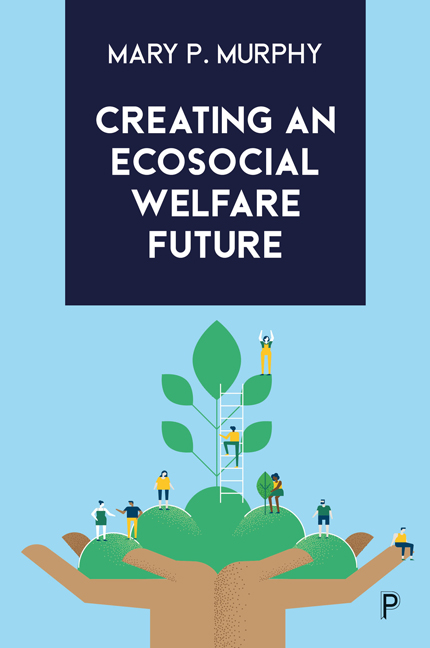Book contents
- Frontmatter
- Dedication
- Contents
- List of figures and tables
- Acknowledgements
- Introduction: The case for a welfare imagination
- PART I From problems to solutions: a post-growth ecosocial political economy
- PART II Building an ecosocial imaginary
- PART III An ecosocial political imaginary
- Conclusion: The case for systemic transformation
- Appendix: Ireland
- Notes
- References
- Index
7 - Power and mobilisation
Published online by Cambridge University Press: 20 January 2024
- Frontmatter
- Dedication
- Contents
- List of figures and tables
- Acknowledgements
- Introduction: The case for a welfare imagination
- PART I From problems to solutions: a post-growth ecosocial political economy
- PART II Building an ecosocial imaginary
- PART III An ecosocial political imaginary
- Conclusion: The case for systemic transformation
- Appendix: Ireland
- Notes
- References
- Index
Summary
Part II of this book argued that a new model of social organisation, an ecosocial welfare regime, is required. If the old welfare state came about because of a post-war settlement, how might an ecosocial welfare state emerge? Polanyi (1944) understands that social protection emerges as the response of a double movement from society pressuring the state to reregulate the disembedded economy to better serve the needs of society. How might various movements, including those seeking gender, climate and economic justice, coalesce to pressure for a new form of ecosocial welfare? Here we begin to tease out the politics of transformation and how the concept of ecosocial can offer a focus for a wider struggle for transformation.
This chapter is realistic about the strong structural power of those who benefit most from maintaining the status quo, and it is in this context that concepts of power and transformation are unpacked before discussing whether crisis might be an opportunity for change. The second part of the chapter explores civil society as a space for agency and mobilisation. Understanding strategic logics of transformation assists us in identifying barriers to effective transformation and inclusive participation in collective action. The Irish case study focuses on power and recent transformative moments in Ireland.
Power and transformation
Structure and agency
The chilling reality of the structural power of markets and corporations need not deny hope in collective agency. However, discussions about transformation need to be clear about the nature of power relationships and how structure and agency interact dialectically to shape change. Transformative coalitional strategies ultimately engage with dominant power found in democratic and governance institutions in the context of strong structural vetoes dominated by elite power.
This analysis is highly sensitive to the power of capital, vested interests, financialised power and the concentration of wealth and power in the hands of the few, often men, who also control social media and the production of knowledge that frames our individual experiences. The lobbying and advertising power of the fossil fuel industry is particularly ominous (Razzouk, 2022). This structural power cannot be denied and is underpinned by policies, the state and coercive power. Structure refers to these large-scale social institutions and the realities which frame our individual experience. It includes culture, society and static organisational patterns.
- Type
- Chapter
- Information
- Creating an Ecosocial Welfare Future , pp. 111 - 128Publisher: Bristol University PressPrint publication year: 2023



